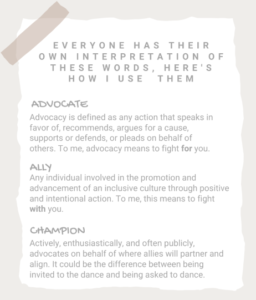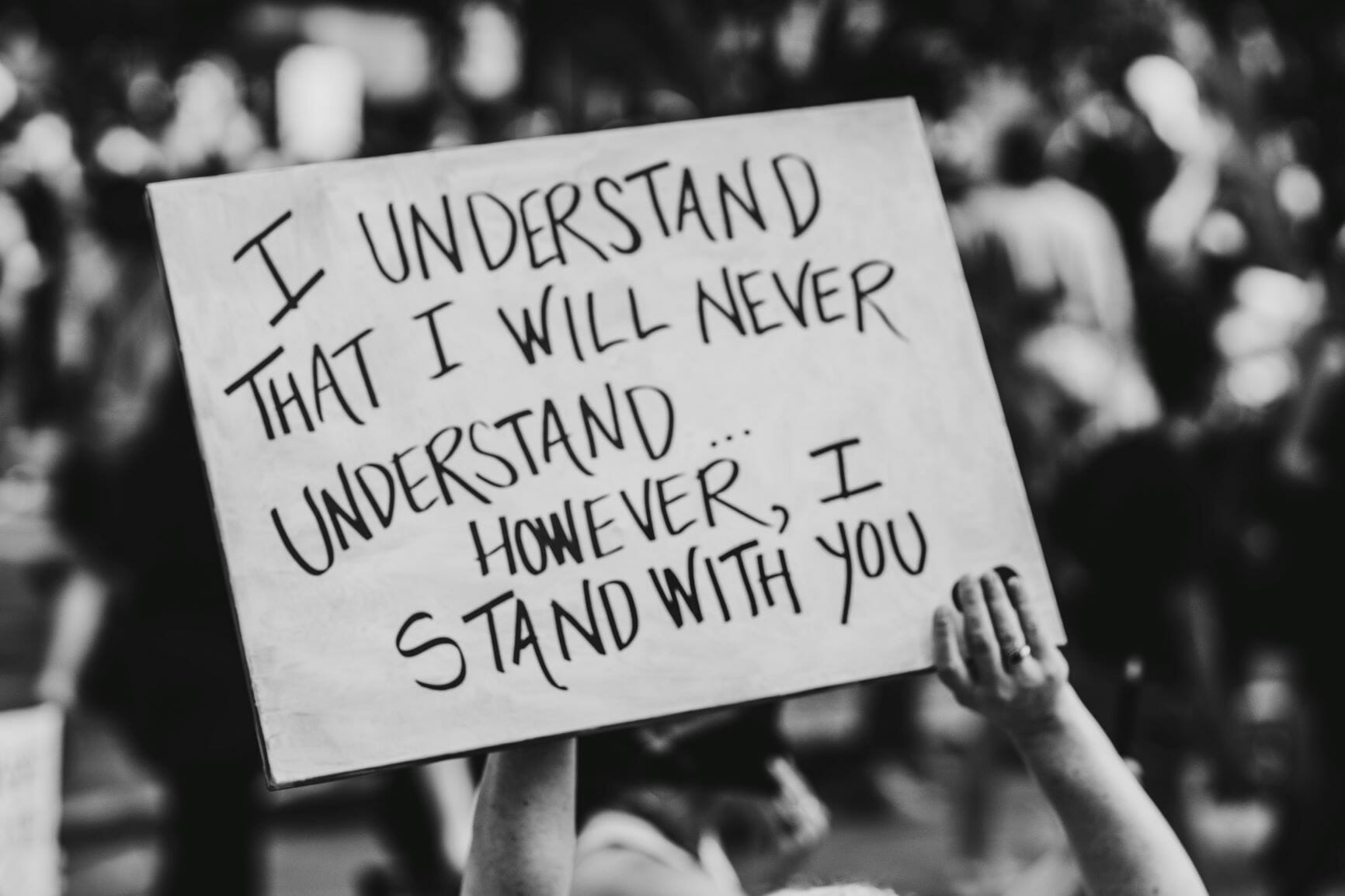I am often asked by clients – leaders and executives – what their advocacy should look like. They want to know what it will look like for them to be a champion.
The answer is… another question. What does it look like for you to be you?
The point I’m making is that the way we champion a cause, a person, or a movement is going to be a reflection of our own personality, our own preferences, and our own communication style.
Too often people look to others for examples of how to act, how to be active, when the best example is right in the mirror. Being a true advocate or ally means being true to yourself.
If you’re quiet by nature, shy, not very outspoken, your advocacy is going to be more quiet, less outspoken. But that doesn’t mean it won’t be effective.
I love how Caitlin Paul, former Chief of Staff of Generation Citizen, reflects on being a ‘quiet’ advocate: “Here is the thing I’ve come to learn about advocacy: much of it happens behind the scenes, in quiet reflective spaces, and through as much listening as talking.”
This year‘s theme for International Women’s Day is ‘Choose to Challenge’. It’s important that before we challenge others, we challenge ourselves in how we show up, and how we speak up. Sometimes this can be a confronting process. I recently wrote about the fact that we all have biases that influence our behaviors. To counter our biases we need to employ empathy; to listen to the stories of others and understand their experiences.

Our allies are looking to us to understand not just how to say something, but when to say something. The how will be unique, but the when should be universal. The way to continue to lead change in the area of women’s inclusion, and anti-discrimination, and other areas that need champions, is to use YOUR unique voice.
As a leader or manager you will have many opportunities to be a champion but if you’re not sure when your advocacy is being called on, succession specialist Stephen Miles reminds us that: “Whenever someone is talking about someone else who’s not in the room, he or she is being an advocate.”
Here are three tips to help you find your voice as a champion:
- Evaluate your own communication style and play to your strengths. If you’re a details person you might use data as part of your advocacy; if you’re a feeling person you’ll be more comfortable sharing stories
- Reflect on your own experiences – how they influence your perspective and ability to be an ally
- Take note of your unique purpose – no one else has your particular combination of experience, knowledge and motivation.
In my work I build DEI champions and I see the courage it takes for people to step up. I also see the results and the reward. The best champion you can be is yourself. Anything else is just an act.






